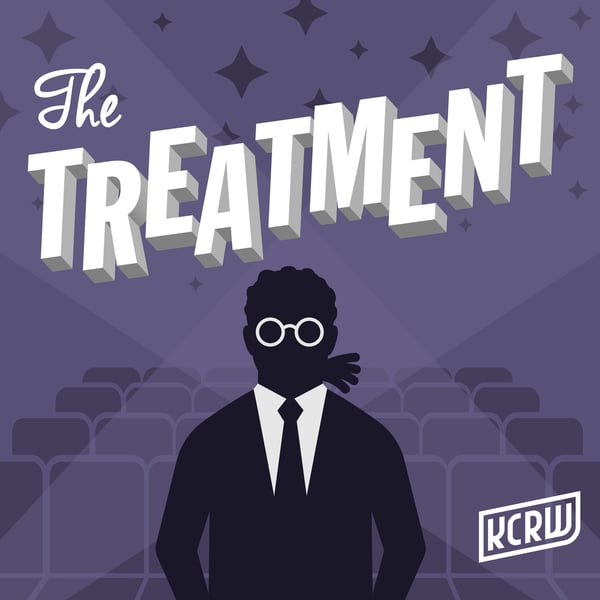Mahamat-Saleh Haroun: Grigris
The Treatment
KCRW
4.6 • 639 Ratings
🗓️ 9 October 2013
⏱️ 14 minutes
🧾️ Download transcript
Summary
Chadian director Mahamet-Saleh Haroun talks about what he calls 'film de quartier,' films of the neighborhood.
Transcript
Click on a timestamp to play from that location
| 0:00.0 | I'm Jenny Rattelet, producer of the treatment. For the month of October, film independent at LACMA is partnering with the LMU School of Film and Television to present Cameras da Freak, the films of West Africa. It's curated by Elvis, and it takes a rare look at the wealth of cinematic talent that's emerged from West Africa over the past 50 years. |
| 0:21.8 | Screenings are taking place every Tuesday and Thursday night at Lachma's Bing Theater and Monday |
| 0:26.5 | nights at LMU's Mayer Theater. Many of the filmmakers will be on hand to discuss their |
| 0:32.5 | films with Elvis. The following conversation with Chadian director Mohamed Salé Harun followed a screening of his first film, Bye Bye Africa, which Elvis calls one of the best directorial debuts of the last 20 years. Harun directed and stars in the film and talks about his approach to filmmaking, no pressure, but lots of passion. Following the conversation was the U.S. premiere of |
| 0:55.9 | Harun's latest film, Grigree, which just played at Cannes, where it was nominated for the |
| 1:00.5 | Palm Door and won a technical prize. For more information on cameras dafreak, including upcoming |
| 1:06.6 | screenings and tickets, visit filmindependent.org slash LACMA. |
| 1:11.9 | First of all, Harun, tell me about the idea |
| 1:14.1 | what made you decide to star in Bye Bye Africa. |
| 1:17.1 | I mean, that was a lot |
| 1:18.8 | to do to both star |
| 1:20.4 | and direct a first movie, wasn't it? |
| 1:23.9 | So the reason he has chosen to star himself in the film is that he wanted to achieve |
| 1:30.3 | a certain level of verity or realism or that's why he decided that he would actually star in a film |
| 1:39.3 | that is very much about himself. |
| 1:42.3 | There are certain things that are autobiographical in the film, |
| 1:50.7 | but one thing which is not is the death of his mother. |
| 1:53.2 | She is still alive. |
| 1:54.1 | My mother is vivante, in fact. |
| 1:58.8 | But, you know, writers use to talk a lot about mothers. |
| 2:05.8 | You know, mothers should have, like, rights. |
| 2:07.7 | You know, when you write a story, you should give a certain person, you know, to your mother. |
... |
Please login to see the full transcript.
Disclaimer: The podcast and artwork embedded on this page are from KCRW, and are the property of its owner and not affiliated with or endorsed by Tapesearch.
Generated transcripts are the property of KCRW and are distributed freely under the Fair Use doctrine. Transcripts generated by Tapesearch are not guaranteed to be accurate.
Copyright © Tapesearch 2025.

